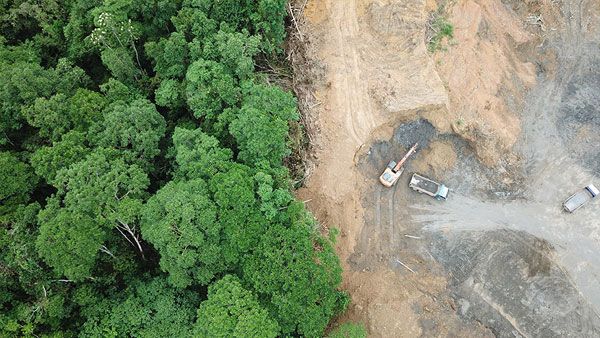Investments focused on nature-based solutions sequestered 3.2 million metric tons of emissions on average each year, a new report from the Global Impact Investing Network (GIIN) has found.
Understanding Impact Performance: Climate Change Mitigation Investments found forestry and agriculture impact investments had made a significant real-world impact. It also found investees decreased their emissions by 6.4% per year, however, a gap remains to achieving the target -7.6% annual decrease in emissions required to limit warming to 1.5°C in alignment with IPCC recommendations.
Nature-based solutions currently dominate the voluntary carbon market, which is expected to exceed $1bn this year. According to a report by Finance Earth, only $20.75bn of private capital is estimated to have flowed to “nature-positive activity and conservation investments” as of 2019, while the requirement for nature investment is estimated at around $700bn per year.
See also: – GIIN CEO: ‘Impact should be part of all investing’
The GIIN report findings are in line with a recent report by the Centre for Climate Finance & Investment (CCFI) at Imperial College Business School in partnership with Standard Chartered. Future of Food Part 2: Nature-based solutions and the quest for low-carbon and climate-resilient agriculture said nature-based solutions can play a crucial role in limiting impact on the agricultural sector, but it warned that poorly designed solutions could create adverse effects such as increasing competition for land, food prices and risks to food security.
Challenges for nature-based solutions include ensuring funding, delivery of proposed climate benefits, and an overall attractive proposition to project developers. Using a cost analysis on three types of nature-based solutions in Brazil, the research identified that ‘good’ projects do exist, but their true costs may be underestimated due to misconceptions, limited scope, hidden costs, and non-technical and non-economic challenges and constraints. Higher prices can also translate to a reduced estimate of deployment potential than currently perceived by markets.
Dr Alexandre Köberle, research fellow at the Centre for Climate Finance and Investment at Imperial College Business School, said: “Nature-based solutions offer a genuinely promising way to counteract the impacts of climate change on agriculture, but they should not be seen as a silver bullet. Many types exist, but fewer are economically competitive and fewer still are attractive to investors. So, it’s important investors carry out more stringent due diligence, and demand quality from the offsets they buy. By setting a high bar and being willing to pay for quality, investors have the opportunity to drive the value of the market for nature-based solutions and deliver social and environmental benefits beyond emissions reduction.”
Chris Leeds, head, carbon markets development at Standard Chartered, added: “Quality and integrity are imperative so that carbon credits can deliver on emissions savings, environmental co-benefits and to protect from greenwashing and the increasing reputational risk for investors looking to do the right thing.”








